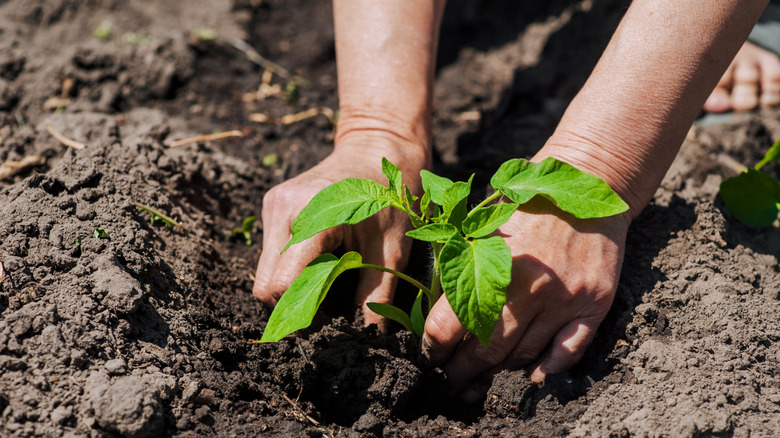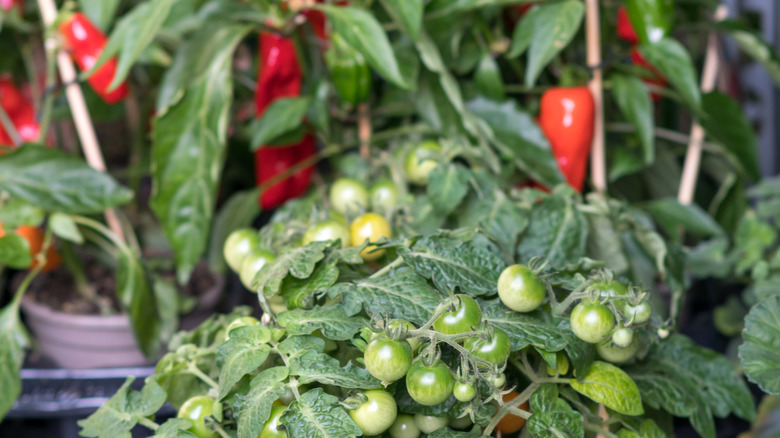Should You Be Planting Tomatoes And Peppers Together In Your Garden?
Companion planting is one of the most beneficial techniques for a bountiful garden. However, not every vegetable family is compatible with another, and mistakes in companion planting can happen easily. Take peppers and tomatoes, for example: They're cornerstones to nearly every garden, and both are part of the nightshade family. There is plenty of information available advising gardeners not to plant certain nightshades, such as tomatoes and potatoes, together. However, for tomatoes and peppers, this pairing can not only work but also benefit your garden.
Since tomato and pepper plant varieties are among the most popular and easiest to grow, gardeners who want to dig a little deeper and maximize every foot of space they have can plant them together, creating a symbiotic relationship that yields the best results. Among these benefits is attracting much-needed pollinators to their similar flowers. Plus, both plants thrive in the same soil pH level of about 6 or 7, which makes them a simple crop to manage when they're grown close to one another. They also both enjoy full sun and enriched soil. However, to get the best results, it's crucial to plant them correctly and be wary of pests and diseases.
Companion planting tomatoes and peppers
To create this fantastic veggie relationship in your garden, you can plant tomatoes, either determinate or tall indeterminate types, on a trellis, cage, or stake. Then, place your pepper plants, such as jalapenos, habaneros, or bell peppers, about 1 or 2 feet away and apart from one another. Proper spacing and pruning of lower leaves, especially those that touch the soil, will improve airflow. This will minimize the risk of blight or fungal disease, which can harm both tomatoes and peppers, while also directing energy production to the fruits. Make sure that both plants get full sun for at least six to eight hours as well and that tall plants do not shade shorter ones.
Since you're interplanting nightshades, common garden pests and diseases can flourish. Therefore, your tomatoes and peppers may be more susceptible to bugs and other ailments that a plant outside their family might discourage. This is why you should leave some room for herbs and other plants that can not only enhance your garden's natural repellents but also add to the beneficial formula of interplanting. In this case, planting onions, garlic, or basil is beneficial. They not only repel pests due to their odors, but they are also the perfect ingredients to complement your tomato or pepper dish. Removing common pests like hornworms and cutworms by hand will also benefit your plants. In the following years, ensure to rotate crops so previous pests and diseases are less of a problem.

